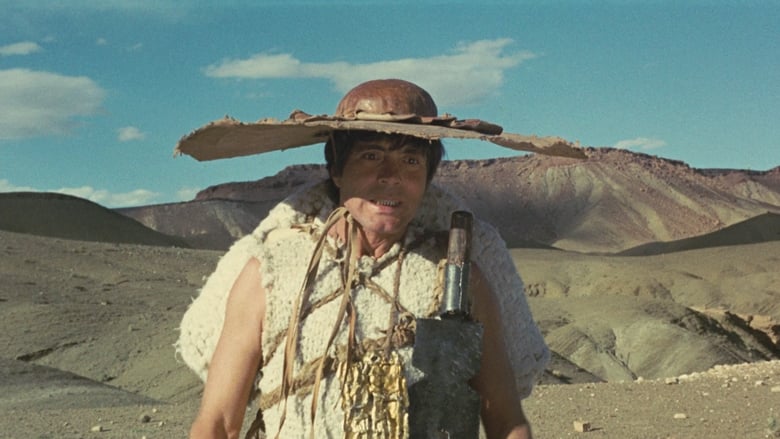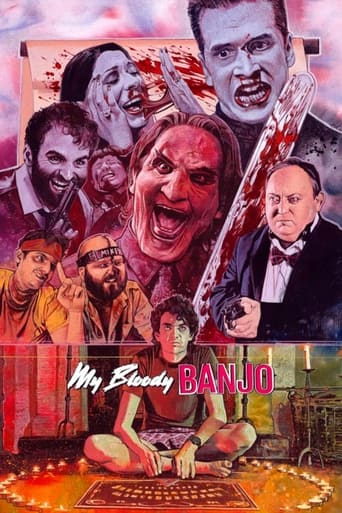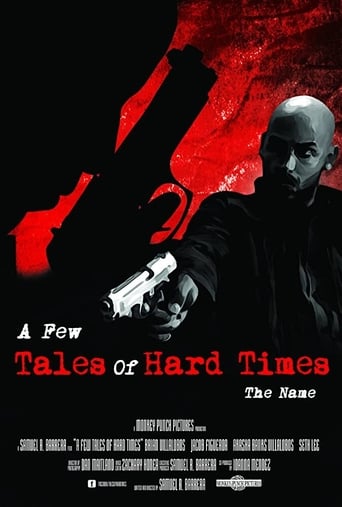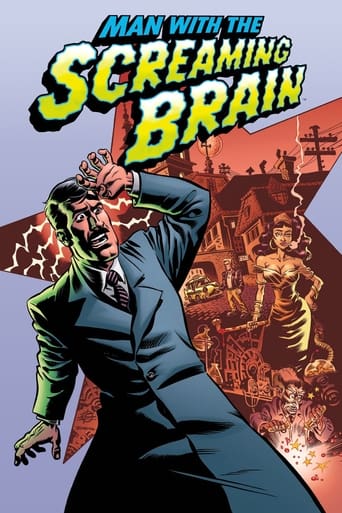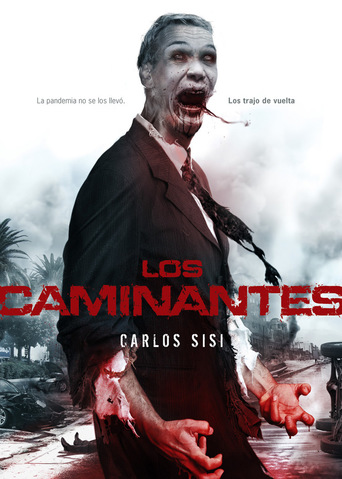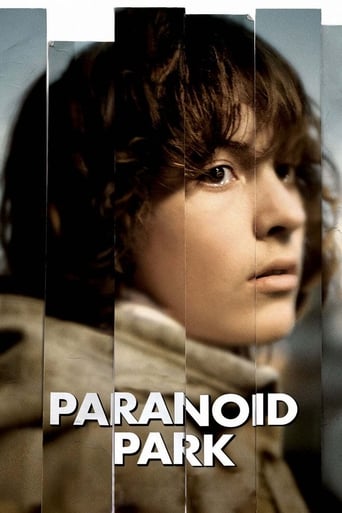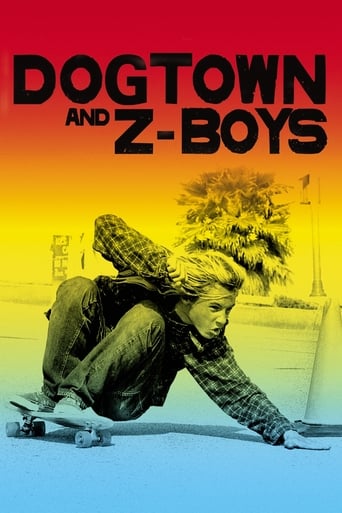Oedipus Rex (1967)
In pre-war Italy, a young couple have a baby boy. The father, however, is jealous of his son - and the scene moves to antiquity, where the baby is taken into the desert to be killed. He is rescued, given the name Edipo (Oedipus), and brought up by the King and Queen of Corinth as their son. One day an oracle informs Edipo that he is destined to kill his father and marry his mother. Horrified, he flees Corinth and his supposed parents - only to get into a fight and kill an older man on the road…
Watch Trailer
Cast
Similar titles


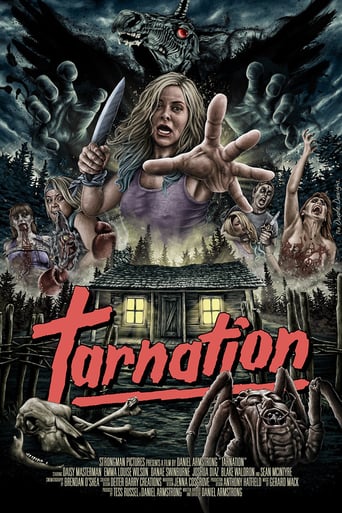
Reviews
Highly Overrated But Still Good
Don't listen to the Hype. It's awful
Did you people see the same film I saw?
The story, direction, characters, and writing/dialogue is akin to taking a tranquilizer shot to the neck, but everything else was so well done.
Another marvelous film by Pasolini.No one is as cinematically intense as this man, but it's not an ordinary intensity he affects. It does not result from the withholding of narrative or visual information, it is not primarily a dramatic intensity; Lean, Hitchcock, Kurosawa, all did some terrific work in that external mode where we see the struggling human being in the cleanly revealed world of choices and fates. Pasolini works his way around all that, starting with one of the most archetypal stories. Here we have anticipation, foreknowledge as fate. And of course there is some dramatic intensity in this and others of his films, but that's not what makes him special. He can create heightened worlds that we experience with a real intensity. It goes back to that film movement called Neorealism which thrived in postwar Italy, where the utmost goal was to soak up a more human, more universal conflict as we staggered through broken pieces of the world.Looking back now it seems stale, we have a much more refined sense of what is real, we can see the conceit of the camera. But two filmmakers emerged from out of this movement who did work in a more radical direction, moving the images closer to perception. Antonioni is one of the greatest adventures in film. Pasolini is the other. The larger point with him is to have an intensely spiritual experience of a whole new storyworld, to that effect he selects myths that we have more or less fixed notions about how they should be (this, Medea, his Gospel film) and films them to have invigorating presence in the now.Every artistic choice in the film reflects that; the dresses, the swords, the landscapes, the faces, it's all intensely unusual to what you'd expect from Greek myth, seemingly handcarved to be from a preconscious world outside maps and time. The camera also reflects that; he could have plainly asked of a fixed camera and smooth, fixed traveling shots from his crew, but evidently he wants that warm lull of the human hand. It's a different sort of beauty, not in some painted image but in our placement in evocative space.When Oedipus visits the oracle at Delphii, we do not have sweeping shots of some ornate marble structure as you'd expect in a Hollywood film. A congregation of dustcaked villagers is gathered in a clearing before a group of trees, the oracle is a frightening old crone attended by slender boys in masks. The roads are dusty, interminable ribbons dropped by absent-minded gods. A Berber village in Morocco stands for ancient Thebes. Sudden dances. Silvana Mangano. And those headgear! It's all about extraordinariness in the sense of moving beyond inherited limits of truth.It works. This is a world of divinity, causal belief, and blind seeing into truth that even though it was fated, we discover anew in the sands.The sequence where a feverish Oedipus confronts his father at the crossroads will stay with me for a long time, the running, the sun, the distance where tethers are pulled taut.
This tale of Oedipus starts off and ends in the twentieth century, though for the most part is set in a primitive version of ancient Greece. There is not much rational connection between the stories, but Pasolini manages to forge himself a free pass on that one. Whilst the Oedipus Complex theme of the first story is meant to be taken quite literally, and is basically autobiographical, the middle story, recognisably Sophoclean, is more, in my opinion, meant to be about an angry confused man who cannot stomach his fate nor confront truths about his identity. As both sections do genuinely feel autobiographical they knit together just fine.The first section of the film set in the 1920s is the best piece of filming I have seen from Pasolini and made me really excited. There's a wide open scene of children running off around a playing field on a hot piercing day, one of those thick childhood days when the emotions battened down the hatches on squire intellect. I was reminded very much of an Edith Sitwell poem (Green Flows the River of Lethe - O): "I stood near the Cities of the Plains / And the young girls were chasing their hearts like the gay butterflies / Over the fields of summer - / O evanescent velvets fluttering your wings / Like winds and butterflies on the Road from Nothing to Nowhere!" The sentiment all the more surprisingly apt given that the second part of the film is shot in what could be the ruins of Sodom and Gomorrah (the Cities of the Plains) for all we know.The rage of Oedipus, which occurs frequently in the movie could be liked to another part of the poem: "But in the summer drought / I fled, for I was a Pillar of Fire, I was destruction / Unquenched, incarnate and incarnadine // I was Annihilation / Yet white as the Dead Sea, white as the Cities of the Plains / For I listened to the noontide and my veins / That threatened thunder and the heart of roses." Part of Pasolini's drive for shooting the films seems to be to continue his fascination with ancient buildings and ruins which he demonstrated three years earlier in his superb 1964 documentary The Walls of Sana'a for which he travelled to Yemen.The end of the playing field scene features Jocasta suckling Oedipus. She gazes directly at the camera and thus the audience for a long period, in which she goes through a range of emotions, including what could be arousal, followed by disquiet, which ultimately turns into a distanced understanding. For me this is cinematically equivalent to the Mona Lisa, which is also a gay man's meditation on his mother, greatly cryptic yet provocative, set in against a natural backdrop.Silvana Mangano, who plays the mother in both parts of the movie (and would star in Pasolini's Teorema the following year), carries a lot of it. Her beauty, her alabaster skin and wispy eyebrows, her perfectly tangled plaits (which would send Fuseli to his knees), are commanding. She has an artistic skill that eclipses that of Franco Citti (Oedipus) and Ninetto Davoli (Thebes' crier) quite totally. Franco Citti's lack of skill, whilst occasionally infuriating in the context of the story (his is not the demeanour of a king) do however lend the film a level of authenticity, given the primary motive of this sequence, which was to demonstrate a pained adolescent fury and denial, which was ignorant at its base.There's an unusual device of writing characters' thoughts in black lettering on a white background, which doesn't quite work but which would be far better than the presumable alternative of camera-faced soliloquies.Some of the locations in the movie felt truly dream-like to me, for instance the unkempt walled piazza-garden of Jocasta, the crumbled ruin where Oedipus meets a naked adolescent girl on his peregrinations, the mountainous areas between cities.The props in the movie are cheap and fantastical but quite brilliant, the wind-blown hands on the milestones to Thebes, the quite bizarre head gear of the Pythoness, the soldiers, and King Laius. Modern producers who delight in throwing money at movies, please note how Pasolini achieves far better results with great economy.Cultural references abound, my favourite being the Japanese music, which doesn't seem to have been referenced anywhere (there are no closing credits in the movie), but sounded very much like the Toru Takemitsu scores of Ansatsu (Assasination), Woman in the Dunes, and Harakiri.The story in a strict narrative sense has problems, Citti doesn't convince as any type of king or warrior, giving the appearance of not understanding his lines at some points, and the suicide of Jocasta makes no sense in the wake of her discussions with her son. It is a movie where feeling rather than thinking brings greater rewards.
I have heard some say this film, as far as it interprets the old legend, is "a piece of c***". I would not go that far, there are some good bits, but Pasolini's approach to telling a story on film is definitely not to my taste. The editing is rough, some of the actors just seem to walk through, like Silvana Mangano as Iocasta, others, like Pasolini himself as Oedipus seem in a constant manic state. You have to look fast to see Alida Valli as Merope, but her performance is the one I remember with the most pleasure. The camera work is unrelentingly stark to the point of boredom. And why, in the name of Pete, that modern "book-end" at the beginning and the end? No sense at all to it, unless Pasolini is trying to say "this is a story for all ages", but, heck, I already knew that.The story as Pasolini tells it follows Sophocles fairly well, with touches taken from Homer, but he doesn't mind going off on his own once in a while. If there is anyone who doesn't know the story, don't read any more until you have seen the film (there's an excellent DVD). In Sophocles, after Oedipus finally realises he has killed his father and fathered four children with his mother as his wife, he blinds himself. Pasolini leaves us there by going back to his modern conclusion. Actually, in the legend, his two daughters, Ismene and Antigone (subjects of another play by Sophocles) guide him on his way to Athens where he ultimately dies. I wish Pasolini had at least given us a glimpse of the girls and this journey. Oh, well, just call me a philistine who doesn't appreciate "real art".
Sophocles' Oedipus Rex is adapted well for the foreign screen. Pasolini, better known for the controversial Salo; 120 Days of Sodom, has kept the intensity level to a minimum while still presenting the perverse qualities for which he would be known for. If you don't know the story (like who doesn't) read the play before seeing the movie - there tends to be a shortage on literature freaks these days. Beautifully filmed, Oedipus Rex begins in modern times, continues sometime BC, and finally ends back in the 20th century; thus presenting a sociological thesis for the viewer. The acting is a bit hammy (seeing Oedipus with a mad streak can be over the top) although the characters are developed well and recite their lines as if on stage. My only complaint is the subtitles seem to blend in with the scenery --- white subtitles against a white background. Therefore, this flaw makes it difficult to enjoy some scenes, and Pasolini's poetry is usually superb. Nevertheless, it's still a great film and is worth a look, especially by people with preconceived hatred for Pasolini's later work -and there's definitely a lot out there.

